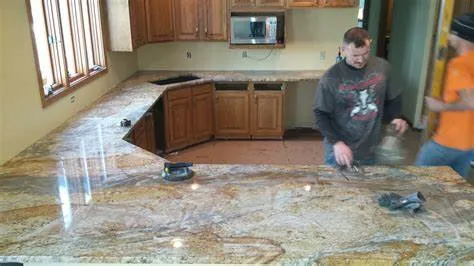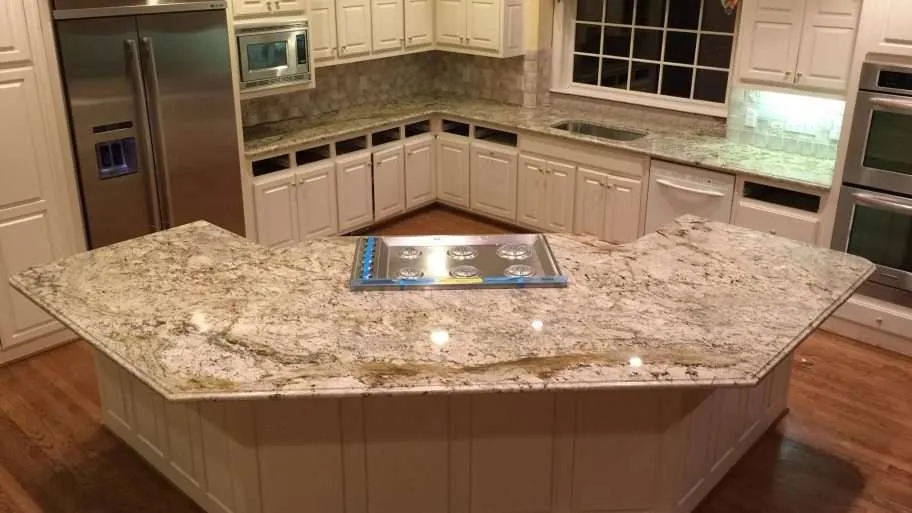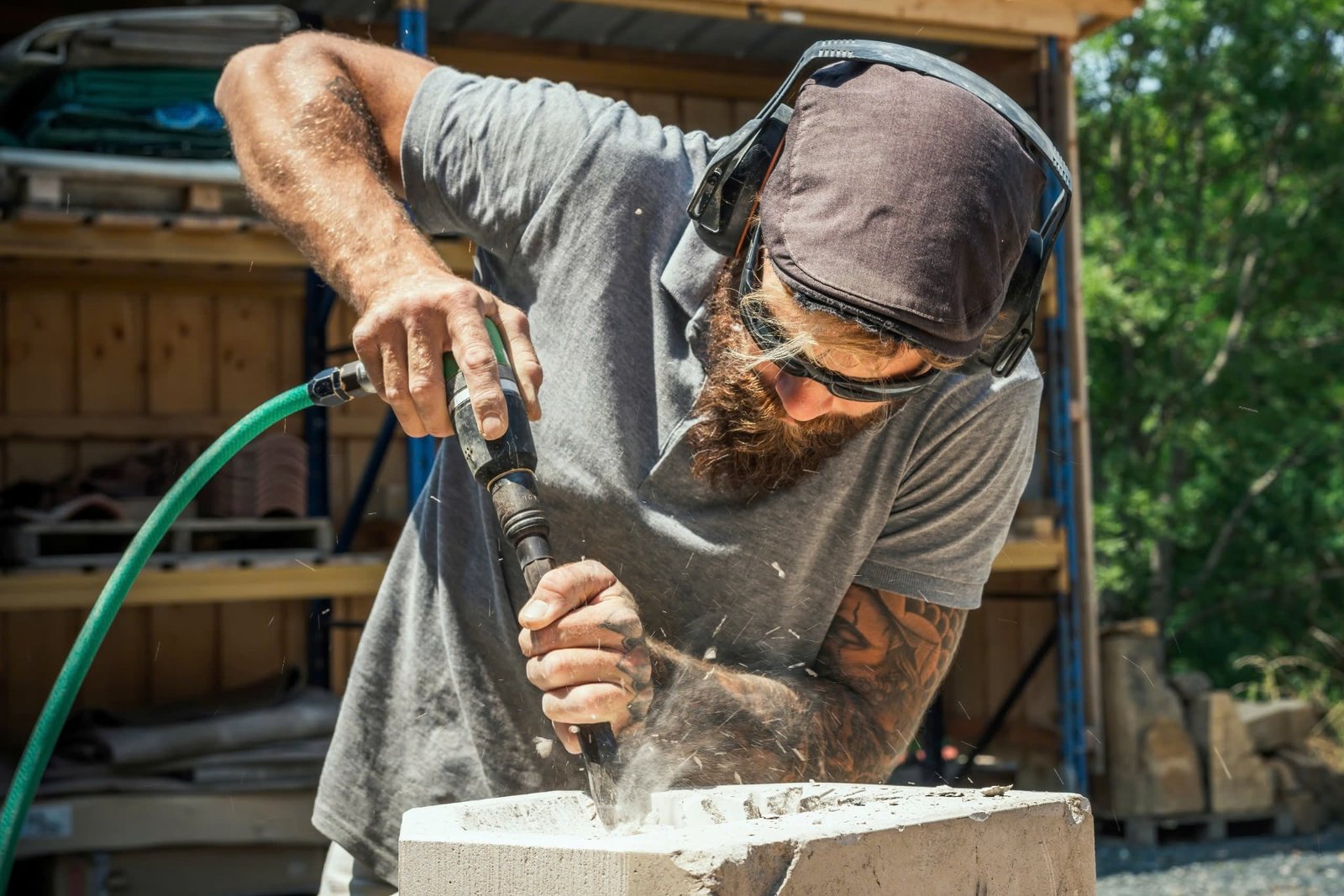
For homeowners seeking a stunning focal point in their kitchen or bathroom renovation, granite countertops offer timeless beauty and lasting durability
For homeowners seeking a stunning focal point in their kitchen or bathroom renovation, granite countertops offer timeless beauty and lasting durability. But who actually installs these luxurious slabs? This comprehensive, 1,000+ word guide explores the types of installers, key considerations, typical costs, and how to choose the right professional for your project.

✅ Who Can Install Your Granite Countertop?
- Specialty Stone Fabricators & Installers
These experts specialize in granite slab-driven projects. They measure, fabricate, polish, and install stone surfaces, often offering full-service packages that include templating, edge profiling, and finish sealing. - Cabinet Makers & Millworkers
Custom cabinetry shops often partner with stone fabricators. This collaboration ensures precise fit with cabinets and integrated moldings, leading to top-quality countertop installation. - General Contractors & Remodelers
Many full-service contractors manage countertop projects as part of broader remodels. They subcontract stone work but oversee scheduling, plumbing, and final inspections to ensure seamless execution. - Handyman Services
Local handymen sometimes take on lighter countertop jobs—smaller kitchens or repair-style installations. Though less common for large slabs, they can handle simpler installations and countertop rescue work. - Retailers & Home Improvement Stores
Big-box outlets like Lowe’s and Home Depot often sell granite and include installation. However, the skill level can vary, and some homeowners prefer hiring dedicated stone professionals to guarantee a higher finish and better service.

✅ What to Expect During Granite Installation
1. Templating & Measurement
Installers create a precise template—using plywood, laser devices, or CAD tech—to capture every corner, cutout, and seam.
👉 Learn how templating connects to successful layout in our article: Can You Install Granite Countertops Yourself?
2. Fabrication & Edge Profiling
Using diamond cutting tools, fabricators cut and shape slabs to your template. Edge finishes like eased, bevel, ogee, or bullnose are ground and polished onsite or in-shop.
3. Dry Fit & Seam Alignment
Installers dry-fit stone pieces to check seams, cabinet clearances, plumbing holes, and backsplash levels before final seaming.
4. Final Installation
The pros use high-strength silicone and hidden fasteners to secure the stone. Slabs are leveled and clamped to cabinet bases.
👉 For homeowners opting to demo countertops themselves first, see our guide: How to Demo Granite Countertops?
5. Seaming & Polishing
Color-matched epoxy fills seams; after curing, glass-like polish is achieved using diamond pads for seamless surfaces.
6. Sealing & Cleanup
A penetrating sealant protects against spills and staining. Lastly, the installer cleans and inspects the countertop for client approval.
🧠 Who Should Hire What Installer?
| Scenario | Recommended Installer |
|---|---|
| Complex templating, edge profiles, or islands | Stone fabricator |
| Full remodel including cabinets & flooring | General contractor |
| Small bathroom or laundry countertop | Handyman or stone pro |
| Upgrades via big-box store purchase | In-house installation team |
| Cabinet-focused project with stone requirements | Cabinetmaker + fabricator |
🚧 Common Installation Challenges
- Heavy lifting & safety: Large slabs can exceed 600 lbs—requiring mechanical help and safety training.
- Trim & cabinet coordination: Ensuring carved edge profiles match cabinetry demands meticulous planning.
- Plumbing/electrical integration: Installers must verify all under-slab connections and plumbing lines.
- Seam precision: Poor seams show gaps or color mismatch, diminishing aesthetic value.
💰 Cost Factors to Consider
- Granite countertop prices vary, starting around $40–$90 per sq ft for materials. Fabrication usually adds $15–$40, while installation labor brings total to $75–$140+ per sq ft.
- Complexity such as curved edges, integrated sinks, or custom overhangs increases cost.
- Regional labor rates can significantly shift final pricing.
- Edge profiles: Intricate finishes like ogee or waterfall edges naturally cost more than simple eased edges.
✅ Are There Warranty or Guarantees?
Professional stone installers typically offer limited warranties covering workmanship (e.g., seam separation, slab cracking during installation). Major remodeling contractors might include broader coverage in their service agreements. Always request a written warranty before hiring.
🛠️ Maintaining Installed Granite Countertops
Even after installation, proper care is essential to maintain luster:
- Wipe surfaces with stone-safe cleaners; avoid acidic chemicals.
- Use trivets and cutting boards to preserve finish.
- Re-seal annually based on usage or after doing a water drop test.
- For repair, such as small chips or scratches, consult a stone countertop repair specialist, especially if your installer doesn’t offer aftercare.
🔄 Alternatives and Comparisons
- Quartz countertops offer low maintenance and consistent color but require different installation techniques.
👉 Learn more: What Are Quartz Countertops?
👉 Caring tips: How to Clean Quartz Countertops? - Marble slab alternatives (like marble countertops) can achieve similar natural stone aesthetics but with softer surfaces.
👉 Explore marble options here: What Is a Marble Slab?
🎯 Final Takeaway: Who Installs Granite Countertops?
From specialty stone fabricators to handymen and big-box teams, several professionals can install granite countertops. The ideal choice depends on your project scope, budget, and desired precision. For detailed or large-scale jobs, stone specialists are your best bet. For simpler replacements, a handyman or retailer installation may suffice.

